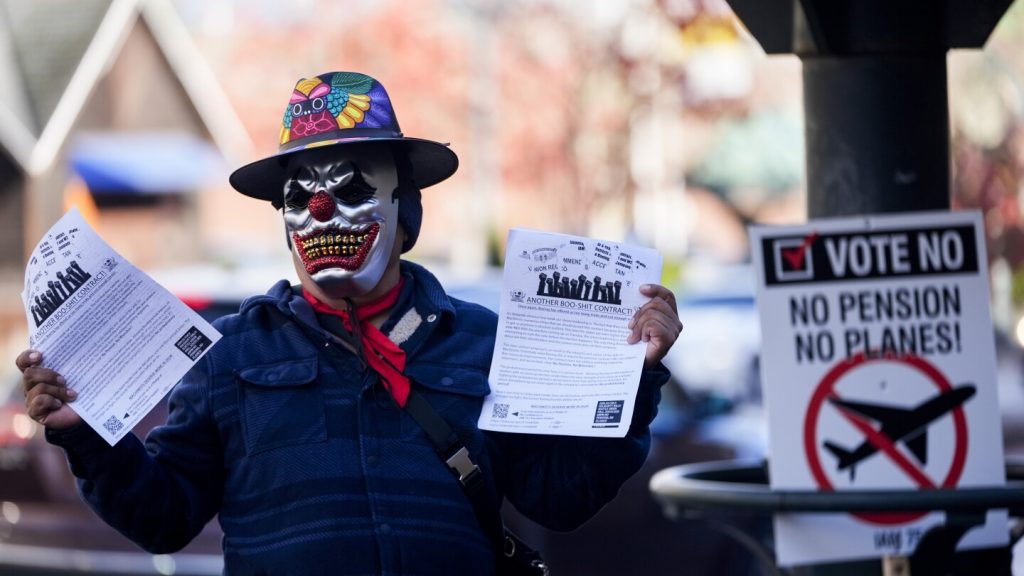Voting has ended for unionized factory workers at Boeing who were deciding whether to accept a contract offer or extend their strike, which has been ongoing for more than seven weeks. The International Association of Machinists and Aerospace Workers were presented with a contract that includes pay raises of 38% over four years along with bonuses. The union endorsed the proposal, stating that they had achieved all they could through bargaining and the strike. The outcome of the vote is expected to be announced late Monday.
Boeing workers who rejected previous offers due to concerns about pensions were faced with a new offer that did not meet their demand to restore a frozen pension plan. If the current contract offer is ratified, workers would return to work by November 12, as they have not received paychecks since mid-September. Some workers, like Bernadeth Jimenez, expressed satisfaction with the proposed wage increases and are eager to return to work. Others, like Theresa Pound, remain concerned about their future financial security and continue to vote against the offers presented.
During the vote, there were fewer pro-strike protesters, indicating a subdued mood amongst workers. The strike began with a strong rejection of a previous offer, leading to ongoing negotiations and revised proposals from Boeing. The latest offer includes larger pay increases, a higher contract-ratification bonus, and increased contributions to retirement accounts. Union officials fear that Boeing may withdraw a pledge to build its next airline plane in the Seattle area if workers reject the offer. Some long-time employees, such as Robert Helgeson, believe the offer is fair and have voted to approve it.
The strike has drawn attention from the Biden administration, with Acting Labor Secretary Julie Su intervening in the talks. This strike, the first by Boeing machinists since 2008, comes at a challenging time for the company, which has faced federal investigations and safety concerns related to its 737 Max planes. The ongoing strike has led to financial challenges for Boeing, impacting production of key aircraft models. The new CEO, Kelly Ortberg, has acknowledged the company’s struggles but emphasized its strengths, including a substantial backlog of airplane orders. Despite the challenges, Boeing remains optimistic about its future.
Overall, the outcome of the vote will determine whether Boeing workers will accept the latest contract offer and return to work, ending a strike that has lasted over seven weeks. The decision will have significant implications for the company’s financial stability and production capabilities. Workers continue to grapple with concerns about their financial well-being and retirement security as they weigh the benefits of the proposed contract offer. The strike has highlighted broader issues within the aerospace industry and the ongoing challenges faced by both workers and manufacturers in the current economic climate.


